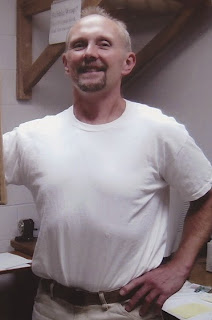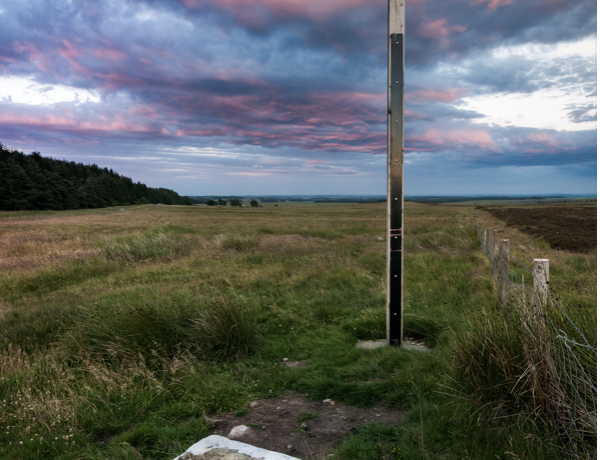By Timothy Pauley
It was a Sunday morning, just like any other. I got up bright and early to prepare for my workout in the prison weight room. Within an hour, I found myself on my knees in front of my toilet, regurgitating my breakfast. In the eight years I’ve been at the facility, it was only the second time I could recall vomiting.
Within an hour I was admitted to the in-patient unit in the prison infirmary. There I sat for the next several days. I was unable to eat and spent the majority of my stay curled up in a ball either vomiting or wishing I could.
After four days of this, I called my brother. I told him I was afraid. Infirmary staff had done nothing beyond putting me on an IV to keep my fluid levels stable. All the while my condition continued to deteriorate. I felt like the creature from the Alien movies was trying to push its way out the front of my abdomen.
The following day I braced myself for more intense agony with no end in sight. I hadn’t slept more than a few minutes and continued to weaken. I felt isolated. I felt like I was dying.
Then the door to my room opened, and in walked my attorney. She assured me I was soon to be transferred to a hospital. My brother had literally saved me.
I was only at the hospital for a short time when they successfully diagnosed me and began to treat my symptoms. I required emergency surgery a few days later.
When I was first sent to Walla Walla, it was a dangerous place. When someone told me “I got your back,” it meant I could be assured they would not let someone sneak up on me. This was a critical role that friends played for one another. It was huge.
The thing my family has impressed upon me over my decades in prison is that they have my back. I know they are there for me. I know I am not completely at the mercy of the bureaucracy in which I am confined. I know they will keep me safe.
But what can I do for them? This is a question I often ask myself. They have been so huge in my life, how could I not wish to reciprocate?
For decades the DOC continually sent me to prisons hundreds of miles from my family. Even when I complied with their hardship policy, I was sent to the opposite corner of the state. My family stepped up and kept that connection alive, often at a great expense.
In the absence of positive options that would show up big in their lives, I finally settled on the only way I could show my appreciation. I could transform myself into the kind of person they could be proud of. I could become a man they would want to help even if we weren’t related. I could show myself worthy of their love and support.
As far as my family is concerned, this was something they neither expected nor asked for. Their love and support was unconditional, but they were very pleased with my transformation. They felt rewarded by my efforts to show my appreciation for them.
As a citizen — perhaps a taxpayer — who is not related to me, isn’t this a good thing? Doesn’t my family support make the world you live in a better place? In a prison system that does nothing to rehabilitate those they are housing, family support is serving an important public interest. It is making the streets safer, one family at a time.
Support of friends and families not only keeps prisoners connected, it keeps us accountable. Were I to overreact to the sick environment I’ve lived in nearly my entire adult life, I know I’d have to explain to my loved ones how I could have disregarded them and engaged in some selfish, perhaps self-destructive act. I’d have to try to explain to them how I could do such a thing and still claim to care about them.
Prison is a hostile environment. There is no shortage of opportunities to overreact to some slight or blatant act of disrespect. Often, a prisoner can count on future mistreatment if they do not overreact to such things. The incentive to do the wrong thing is strong.
Our prisons have devolved into human warehouses. The only type of warehouse that actually damages the commodity it stores. The fact that this is by design should be far more disturbing than it seems to be. The accountability prisoners feel towards their friends and families is often the only incentive we can cling to in the fight to keep the system from destroying them.
“My family keeps me connected to the world. If it weren’t for them, the inside of this prison would be my whole world.”




2 Comments
Tayo&Roguie
February 14, 2019 at 2:45 pmI agree with Cynthia, very nice read. Thoughtful
Cynthia K
February 11, 2019 at 2:30 amWonderful and well said. I couldn't agree more and like this writer's style. Hope too see more from Mr. Pauley.